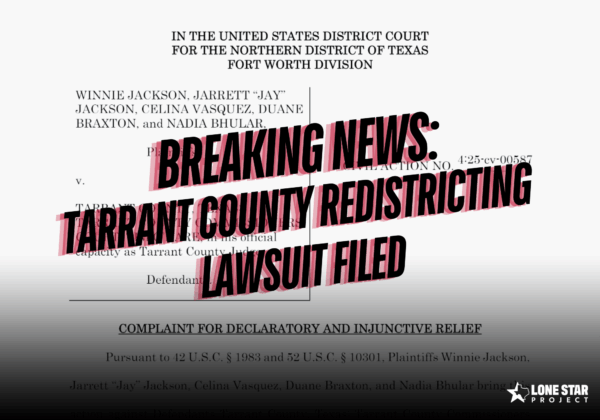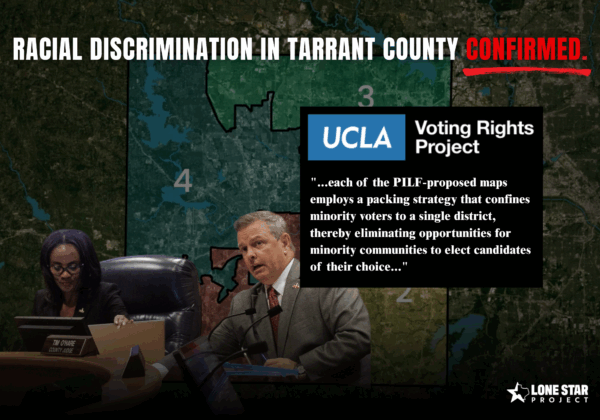| Late yesterday afternoon, a federal district court in San Antonio found that, yet again, Texas Republicans intentionally discriminated against Texas voters of color in the drawing of congressional districts. In a unanimous decision, the Court invalidated two congressional districts; one drawn with the purpose of diluting the voting strength of minority Texans, and the other drawn impermissibly based upon race. While state lawmakers must wait on the court’s decision regarding Texas’ State House maps, which the San Antonio court previously ruled intentionally discriminatory, the court has presented Texas Republicans with a challenge and opportunity to redraw districts and change course on their long standing fight against Texas voters, especially those of color. Don’t expect Texas Republicans to accept the challenge—already Attorney General Ken Paxton has announced that he will appeal yesterday’s decision, signaling that there is no limit on taxpayer dollars Texas Republicans will spend to defend their record of discrimination. If Texas Republicans pass on the chance to redraw, the federal court has ordered the state and plaintiff groups to return to court next month for a hearing on new maps. While media outlets and plaintiff groups are still reading through the decision and deciding on the next steps, the Lone Star Project has compiled statewide new stories on yesterday’s decision in an effort to explain and provide context on the court’s 107-page decision: The 7th finding of intentional discrimination since 2011 Following a March ruling from the San Antonio federal court where it was found that Texas Republicans intentionally discriminated against Texans of color in the drawing of the 2011 congressional maps, the federal judges again found that the maps adopted later by the Texas legislature in 2013 did nothing to remedy the discrimination the court found in the 2011 maps. In particular, the court ruled that discrimination in Congressional District 27 (Corpus Christi) and the improper racial purpose in District 35 (Travis County) was not resolved in 2013 by state lawmakers, instead Republican lawmakers allowed the districts to remain intact with their discriminatory “taint”. The Court stated: |
|
|
|
|
|
|
|
|


